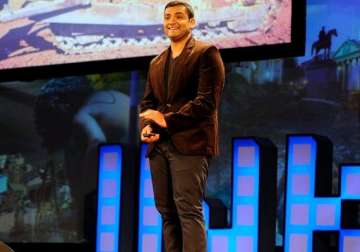New York: A 28-year-old Indian architect has been named “young leader of tomorrow” by Time magazine for his pioneering work in designing affordable flood-proof houses for slum dwellers.
Alok Shetty is among “leaders of tomorrow” who are “working hard to change their worlds today,” Time said as it named six inspirational young persons in its first class of “next generation leaders”.
Time said Shetty is “building hope in India” as an architect who is “finding simple solutions to complex problems.”
Mr Shetty, working with the Bangalore-based nonprofit Parinaam Foundation, is designing homes for hundreds of slum dwellers whose makeshift houses flood during the heavy rains and become breeding grounds for diseases like malaria.
He has been working in Bangalore's LRDE slum, which lies next to one of the southern Indian city's sprawling technology parks and is home to some 2,000 people.
Mr Shetty, who studied Master's in architecture at Columbia University, “came at the problem with an approach he brings to all of his projects “marrying smart design with a commitment to sustainability.”
He designed flood-proof houses, costing $300, out of discarded scaffolding, bamboo and wood. The houses are affordable and easy to set up as it takes only four hours to erect and dismantle them.
Mr Shetty is seeking government subsidies to bring the price down further for those who cannot afford the units.
“Shetty epitomizes a growing breed of young leaders and entrepreneurs in India who are committed to finding solutions for a country undergoing rapid social and economic changes, some of which can leave India's poorest straggling behind,” Time said.
Another venture by is a plan to boost access to healthcare and education in remote communities.
“In my travels I saw vast stretches of rural India where infrastructure for health care and education was severely underdeveloped,” he says in the Time report.
“Building facilities in these areas is not impossible but it is time-consuming. Adaptive architecture...can be an extremely effective solution to help address our developmental problems,” he said, adding that “often the simplest solutions are the best solutions.”
Latest India News
